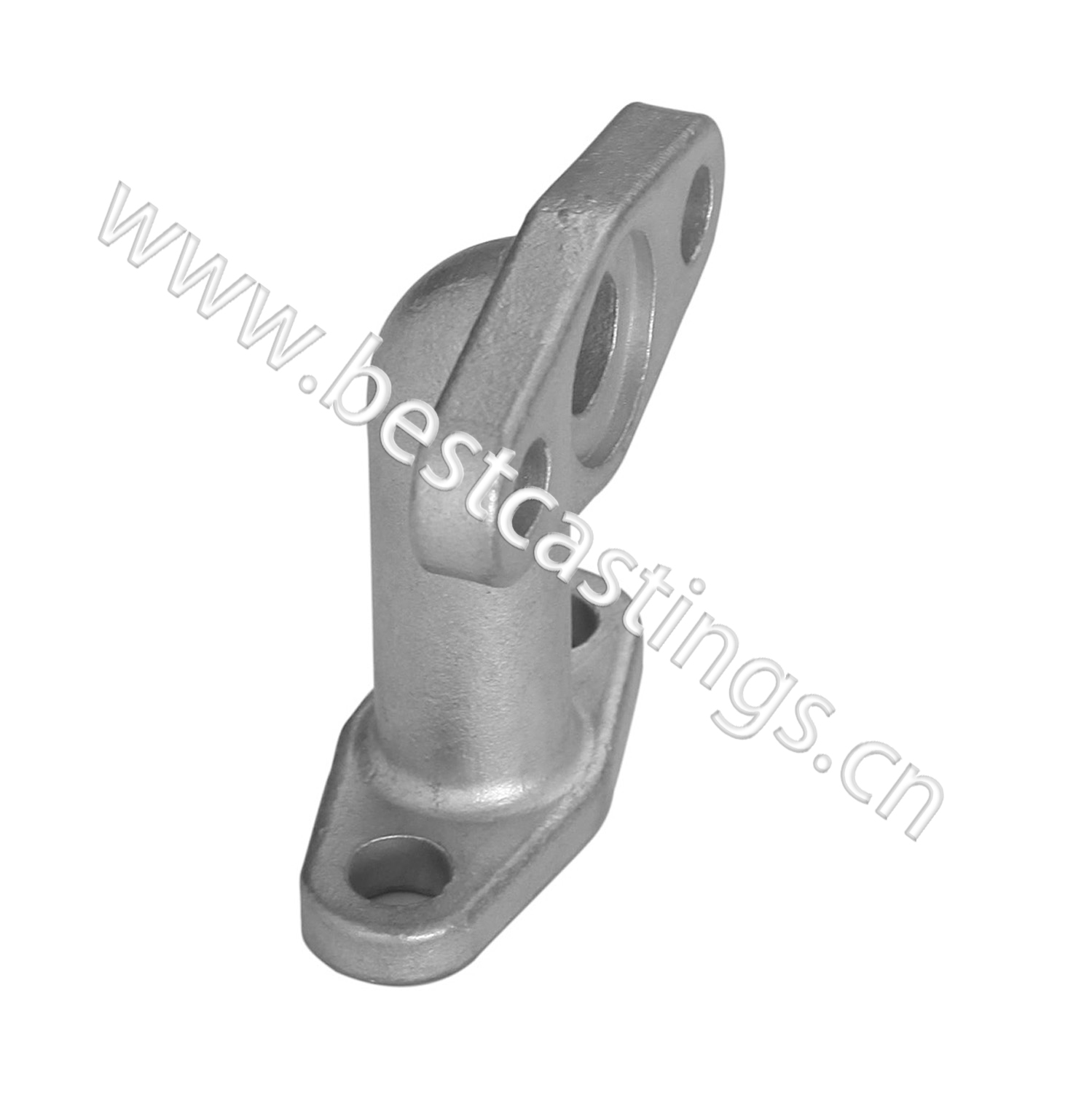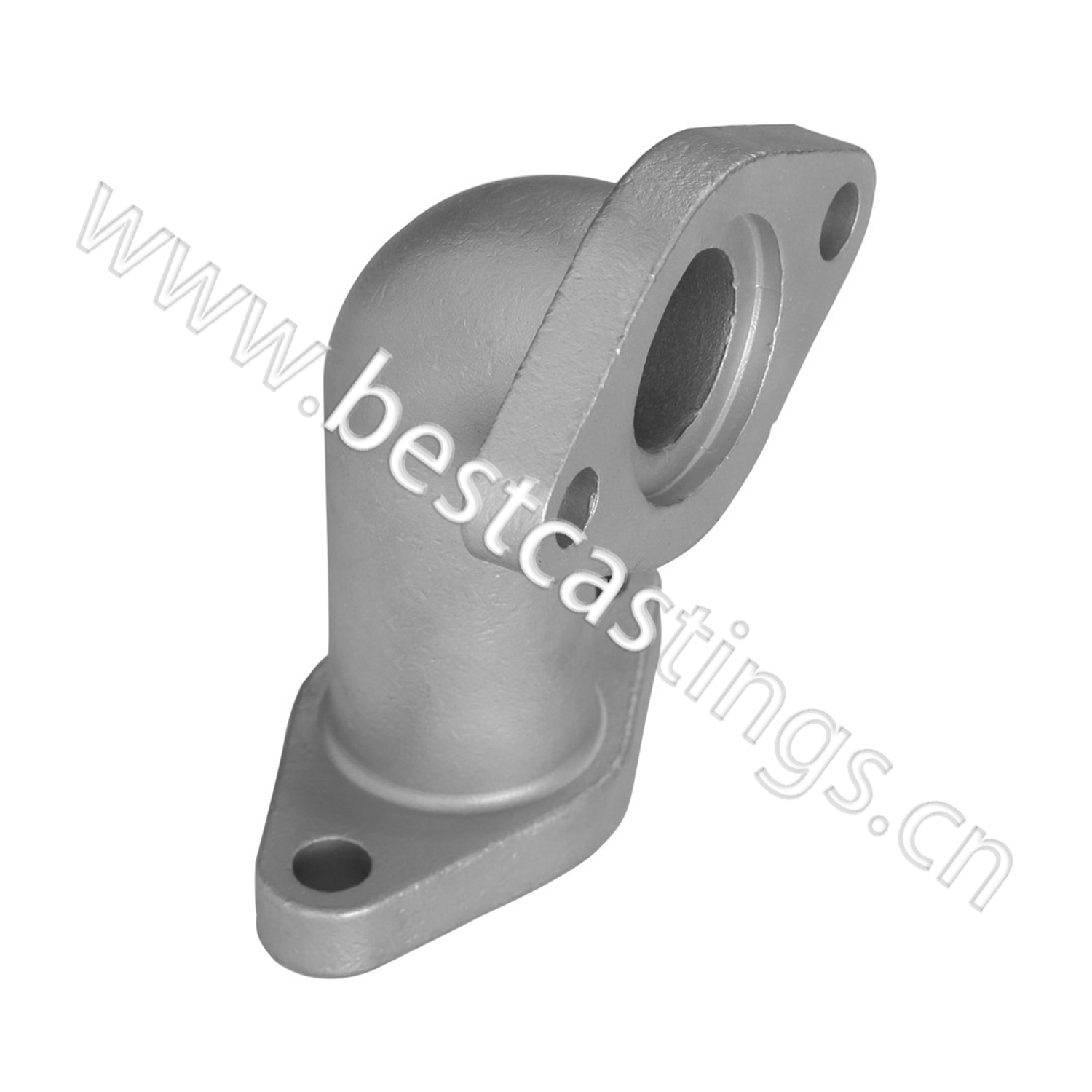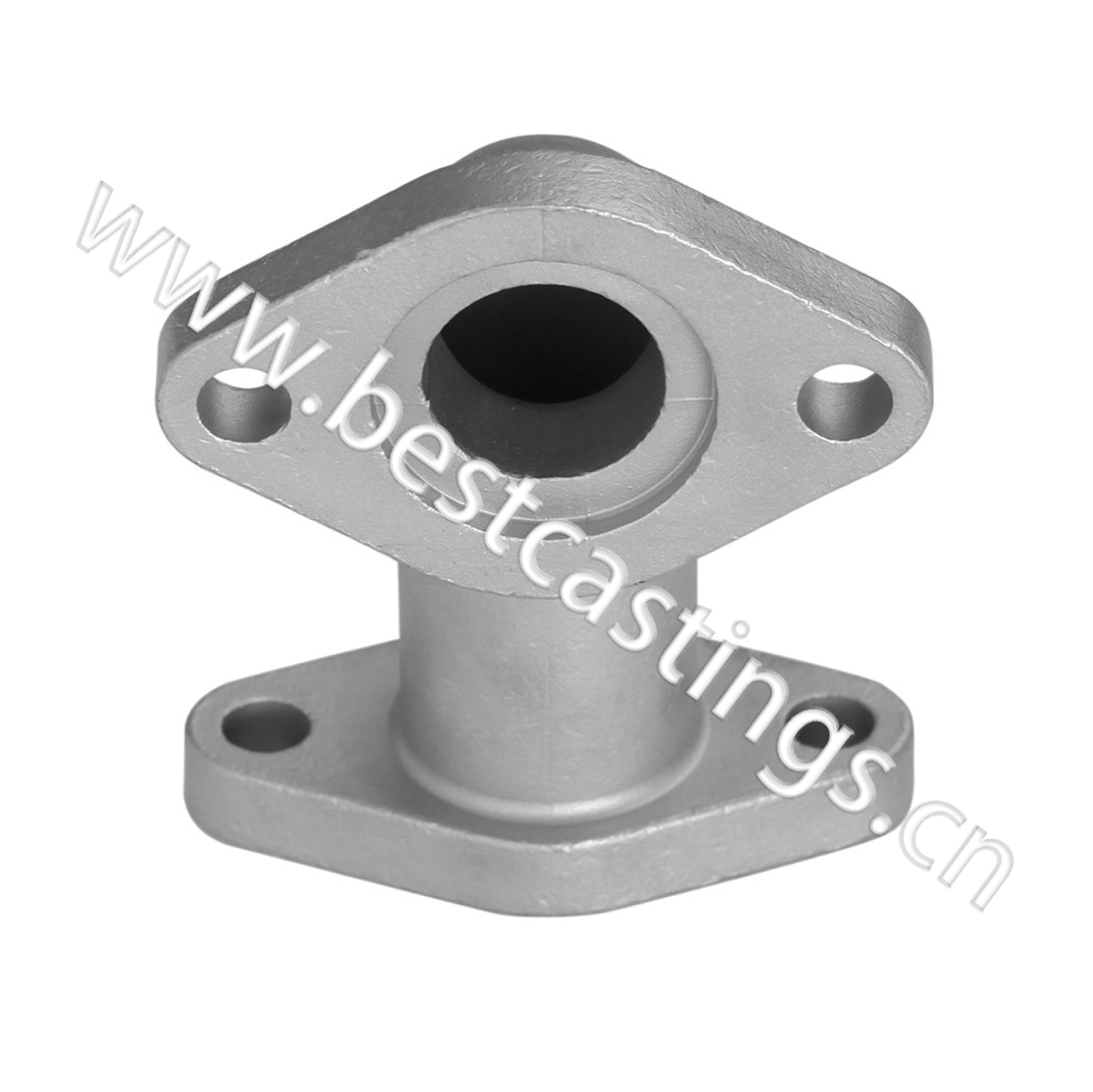Elevating Industrial Infrastructure with Advanced Cast Iron Solutions
In the demanding landscape of industrial engineering, the integrity and reliability of critical components are paramount. Among these, cast iron casing stands out as a foundational element, integral to a multitude of heavy-duty applications. This article delves into the sophisticated world of cast iron components, focusing on the primary keyword and related products such as cast iron flanges, cast iron castings, and grey cast iron rod. We explore the intricate manufacturing processes, technical specifications, diverse application scenarios, and the inherent advantages that make cast iron a preferred material for engineers and procurement specialists. The industry is currently witnessing a robust trend towards enhanced material performance, greater energy efficiency, and extended service life for industrial components, driven by stringent operational demands and a heightened focus on sustainability. Manufacturers are continually innovating to meet these challenges, leveraging advanced metallurgy and precision manufacturing techniques to produce components that exceed conventional expectations in terms of durability, resistance to harsh environments, and overall cost-effectiveness. The global market for industrial castings is projected to grow steadily, propelled by infrastructure development and industrial expansion in sectors such as water management, petrochemicals, and energy generation.
The Meticulous Process of Manufacturing Cast Iron Casing
The production of high-quality cast iron casing is a complex, multi-stage engineering process demanding precision and adherence to rigorous standards. It typically involves advanced casting techniques, followed by meticulous machining and comprehensive testing.
Process Flow Overview:
- Pattern Making: Precision patterns, often made from wood, metal, or plastic, are crafted to the exact dimensions of the desired cast iron casing. Digital CAD models guide this initial phase, ensuring dimensional accuracy.
- Mold Creation: Using the patterns, sand molds (green sand or resin-bonded sand) are formed. Cores are often used to create internal passages or hollow sections within the casing.
- Melting and Alloying: Raw materials, primarily pig iron, steel scrap, and alloying elements (e.g., silicon, manganese, carbon, molybdenum), are melted in induction furnaces or cupolas. Strict metallurgical controls ensure the correct composition for grey cast iron, ductile iron, or other specified alloys.
- Pouring: The molten metal, at precisely controlled temperatures, is carefully poured into the prepared molds. This phase is critical to prevent defects like porosity or cold shuts.
- Cooling and Solidification: The poured metal cools and solidifies within the mold, a process controlled to achieve the desired microstructure and mechanical properties.
- Shakeout and Fettling: Once solidified, the casting is removed from the sand mold (shakeout). Risers, gates, and flash are then removed through processes like grinding, chipping, and shot blasting.
- Heat Treatment (Optional): For specific applications, particularly with ductile iron cast iron castings, heat treatment processes such as annealing or normalizing may be applied to optimize properties like ductility and toughness.
- CNC Machining: Modern manufacturing relies heavily on CNC (Computer Numerical Control) machining to achieve the precise dimensions, surface finishes, and intricate features required for the cast iron casing. This includes boring, milling, drilling, and turning operations.
- Testing and Quality Control: Each cast iron casing undergoes stringent testing, including dimensional inspection, non-destructive testing (NDT) like ultrasonic or magnetic particle inspection, hydrostatic pressure testing, and material analysis (spectrography). Adherence to standards such as ISO 9001, ASTM A48, ASTM A536, and ANSI B16.4 for cast iron flanges and fittings is strictly maintained.
- Coating and Finishing: Depending on the application, protective coatings (e.g., epoxy, cement lining) are applied to enhance corrosion resistance and extend service life, particularly in water supply & drainage or petrochemical environments.
This meticulous process ensures that each cast iron casing or component, whether it’s a specific pump casing or a complex valve body, meets the highest industry standards for performance and reliability. Target industries benefiting from these robust solutions include petrochemical, metallurgy, power generation, water supply & drainage, and various segments of general industrial machinery. The advantages realized are significant, ranging from exceptional corrosion resistance in specific environments to superior vibration dampening properties, contributing to energy saving and reduced operational noise.

Technical Specifications and Performance Parameters
Understanding the technical specifications of cast iron casing and its related components is vital for ensuring optimal performance and safety in industrial applications. The choice of material grade, dimensional accuracy, and pressure ratings are critical factors influencing the operational integrity of systems. Below is a detailed table outlining typical parameters for industrial-grade cast iron casing.
Typical Cast Iron Casing Specifications (Grey & Ductile Iron)
| Parameter | Grey Cast Iron (e.g., ASTM A48 Class 30/35) | Ductile Iron (e.g., ASTM A536 Grade 65-45-12) |
|---|---|---|
| Tensile Strength | Min. 207-241 MPa (30-35 ksi) | Min. 448 MPa (65 ksi) |
| Yield Strength | N/A (Brittle Material) | Min. 310 MPa (45 ksi) |
| Elongation | Less than 1% | Min. 12% |
| Hardness (Brinell) | 170-241 HB | 160-210 HB |
| Operating Temperature | -20°C to 340°C (-4°F to 644°F) | -20°C to 450°C (-4°F to 842°F) |
| Pressure Rating (Flanged) | ANSI Class 125, PN10, PN16 | ANSI Class 150/300, PN16, PN25 |
| Corrosion Resistance | Good, improved with coatings | Excellent, especially with proper coatings |
| Typical Applications | Water, sewage, low-pressure steam, general industrial fluids | High-pressure water/gas, petrochemicals, power generation, heavy machinery |
These specifications highlight the versatility of cast iron. While grey cast iron rod and grey cast iron castings offer excellent vibration damping and compressive strength, ductile iron components provide superior tensile strength and ductility, making them suitable for applications requiring higher pressure and impact resistance. The selection depends heavily on the specific operational environment and performance requirements.

Diverse Application Scenarios and Technical Advantages
The robust characteristics of cast iron casing make it an indispensable component across numerous heavy industries. Its ability to withstand high pressures, temperatures, and corrosive media, coupled with its excellent mechanical properties, ensures long-term operational integrity.
Key Application Sectors:
- Petrochemical and Oil & Gas: Cast iron casing is extensively used in pump casings, valve bodies, and various pipeline components due to its resistance to corrosive chemicals and high-pressure fluid transfer. Its robust nature ensures safety and reliability in critical infrastructure.
- Water Supply & Drainage: A cornerstone of municipal infrastructure, cast iron casings for pumps, hydrants, and large-diameter pipes are chosen for their long service life, hydraulic efficiency, and resilience to underground conditions. The material’s corrosion resistance, often enhanced by internal and external coatings, minimizes maintenance and extends system longevity.
- Metallurgy and Heavy Manufacturing: In high-temperature and abrasive environments, cast iron castings form integral parts of industrial furnaces, rolling mills, and heavy machinery, where their thermal stability and wear resistance are crucial. Components like bearing housings and gearboxes benefit from cast iron’s vibration damping properties.
- HVAC and Power Generation: Boiler components, heat exchanger casings, and cooling system parts often utilize cast iron due to its ability to handle thermal cycling and maintain structural integrity under varying temperature regimes.
- Automotive and General Industrial Machinery: Engine blocks, transmission housings, and various machine tool bases capitalize on cast iron’s strength, rigidity, and superior vibration dampening, leading to quieter operation and extended machine life.
Key Technical Advantages:
- Exceptional Durability and Service Life: With proper material selection and installation, cast iron casing products can provide decades of reliable service, often exceeding 50-100 years in underground applications, minimizing lifecycle costs.
- Superior Vibration Damping: The graphite structure in grey cast iron provides excellent vibration damping, reducing noise and wear in machinery, thereby contributing to quieter operations and prolonged equipment lifespan.
- High Compressive Strength: Cast iron exhibits excellent resistance to compressive loads, making it ideal for structural applications where rigidity and load-bearing capacity are critical.
- Corrosion Resistance: While not impervious, cast iron, especially ductile iron with protective coatings (e.g., fusion-bonded epoxy, cement-mortar lining), offers significant resistance to various corrosive environments, enhancing its suitability for water and wastewater applications.
- Cost-Effectiveness: Compared to other high-performance alloys, cast iron offers a more economical solution for large-scale production, especially when considering its long service life and reduced maintenance requirements.
- Design Flexibility: The casting process allows for the creation of complex shapes and intricate internal geometries, enabling highly optimized designs for fluid flow and structural integration.
- Thermal Stability: Cast iron maintains its mechanical properties across a broad temperature range, from sub-zero conditions to elevated industrial temperatures, making it versatile for diverse thermal environments.
These combined attributes underscore why cast iron casing components remain a cornerstone of industrial infrastructure, providing robust and reliable solutions that contribute significantly to operational efficiency and safety.

Vendor Comparison, Customized Solutions, and Application Case Studies
Selecting the right supplier for cast iron casing and other complex cast iron castings is crucial for project success. A strategic vendor comparison, coupled with the availability of customized solutions, ensures optimal performance tailored to specific operational demands.
Strategic Vendor Comparison Factors:
When evaluating suppliers for critical cast iron casing components, B2B decision-makers should consider the following:
- Quality Certifications: Look for ISO 9001:2015 certification, adherence to ASTM, ANSI, EN, and other relevant international standards for material composition and dimensional accuracy.
- Manufacturing Capabilities: Assess expertise in various casting methods (sand casting, lost foam), precision CNC machining, and comprehensive testing facilities (NDE, hydrostatic).
- Metallurgical Expertise: A vendor’s ability to provide detailed material analysis and recommend appropriate cast iron grades (e.g., grey, ductile, or alloyed cast iron) for specific applications is invaluable.
- Customization and Engineering Support: The capacity to produce custom cast iron casing designs, including specific dimensions, integrated cast iron flanges, or specialized coatings, alongside robust technical support.
- Lead Times and Logistics: Reliable lead times, efficient supply chain management, and global shipping capabilities are essential for project timelines.
- Industry Experience and Track Record: A proven history of successful projects and long-term partnerships in target industries (e.g., petrochemical, water infrastructure).
Tailored Customized Solutions:
Modern industrial projects often require bespoke solutions beyond off-the-shelf products. Leading manufacturers offer comprehensive customization for cast iron casing, including:
- Custom Dimensions and Geometries: Engineering services to design and manufacture casings to precise spatial and functional requirements, optimizing for flow dynamics or structural integration.
- Material Specificity: Development of specialized cast iron alloys with enhanced properties (e.g., higher corrosion resistance, increased wear resistance) for unique operational challenges.
- Integrated Features: Manufacturing cast iron casing with integrated components such as specific mounting points, complex internal passages, or pre-machined surfaces for seamless assembly.
- Surface Treatments and Coatings: Application of advanced internal linings (e.g., cement-mortar, glass flake epoxy) and external coatings (e.g., zinc-rich primer, bitumen, polyurethane) for extended service life in aggressive environments.
- Performance Optimization: Collaborating with clients to refine designs for improved hydraulic efficiency, reduced cavitation, or enhanced thermal management.
Real-World Application Case Studies:
These examples illustrate the practical value and reliability of advanced cast iron casing solutions:
A major urban water utility required robust pump casings for a new high-pressure pumping station designed to serve expanding residential areas. The challenge involved ensuring long-term reliability and resistance to internal corrosion from treated water. A vendor specialized in ductile iron cast iron casing provided custom-designed casings (ASTM A536 Grade 65-45-12) with an internal cement-mortar lining. The solution offered superior burst strength and excellent corrosion protection, significantly extending the service life beyond that of conventional steel counterparts. Post-installation, the station reported minimal maintenance requirements and consistent hydraulic performance over a five-year period, demonstrating substantial operational cost savings.
A chemical plant faced issues with rapid corrosion and wear in their effluent treatment system’s pump casings due to the acidic and abrasive nature of the wastewater. Standard materials failed prematurely, leading to frequent downtime. A custom solution involving specialized alloyed cast iron casings, combined with a high-performance epoxy coating, was engineered. The vendor’s metallurgical team developed a specific cast iron casting with enhanced chromium content for improved chemical resistance. This customized approach dramatically increased the lifespan of the pump casings by over 300%, reducing maintenance cycles and improving plant operational continuity. The initial investment in bespoke solutions proved highly cost-effective in the long run.
A manufacturer of large industrial gearboxes sought to reduce noise and vibration levels to comply with new occupational safety regulations and enhance product longevity. They switched from fabricated steel housings to precision-machined grey cast iron casing. The inherent micro-graphite structure of the grey cast iron provided superior vibration damping characteristics. This resulted in a significant reduction in operational noise by 8-10 dB and a notable decrease in wear on internal components, extending the gearbox’s service life and improving overall worker comfort. The project showcased the profound impact of material selection on both performance and environmental factors.

Commitment to Excellence and Trust: Our Standards
As a leading provider of industrial cast iron casing and related components, we adhere to the highest standards of Expertise, Experience, Authoritativeness, and Trustworthiness () to ensure our clients receive superior products and services. With over two decades of dedicated service in the heavy industrial sector, our commitment to quality is unwavering.
Quality Assurance and Certifications:
- Our manufacturing facilities are certified to ISO 9001:2015, ensuring stringent quality management systems at every stage, from material sourcing to final inspection.
- Products, including cast iron flanges and grey cast iron rod, comply with international standards such as ASTM, ANSI, BS, EN, and DIN, providing global compatibility and reliability.
- Each batch undergoes rigorous testing, including chemical analysis, mechanical property testing (tensile strength, hardness), dimensional checks, and non-destructive evaluations (NDT) like ultrasonic or radiographic inspection, as per project specifications.
Frequently Asked Questions (FAQ):
Q: What are the primary advantages of using cast iron casing over steel or PVC alternatives?
A: Cast iron casing offers superior vibration damping, excellent compressive strength, good thermal stability, and, particularly with ductile iron, high tensile strength and ductility. Its cost-effectiveness for heavy-duty applications and potential for very long service life often surpass steel in specific scenarios (e.g., underground water mains) and significantly outperform PVC in terms of pressure, temperature, and mechanical robustness.
Q: How can I specify the correct material grade for my cast iron casing application?
A: Material selection depends on factors such as operating pressure, temperature range, corrosive media, and required mechanical properties (e.g., strength, ductility, wear resistance). Our engineering team can assist in recommending the optimal grade, whether it’s ASTM A48 Class 30/35 for general-purpose grey cast iron castings or ASTM A536 Grade 65-45-12 for high-performance ductile iron applications, ensuring compliance with relevant industry standards.
Q: What is the typical lead time for custom cast iron casing orders?
A: Lead times vary based on the complexity of the design, order volume, and current production schedules. For standard items, lead times typically range from 4-6 weeks. Custom or highly specialized cast iron casting projects may require 8-12 weeks for pattern development, casting, machining, and final inspection. We offer expedited options for urgent requirements; please contact our sales team for precise estimates.
Q: What kind of warranty do you offer on cast iron casing products?
A: We provide a standard 12 to 24-month warranty against manufacturing defects, depending on the product type and application. Our commitment extends to ensuring products meet all specified performance criteria and quality standards. Specific warranty details are provided with each quotation and order.
Lead Time, Fulfillment, and Customer Support:
Our streamlined production and logistics ensure efficient order fulfillment. We maintain robust supply chains and inventory for common raw materials to minimize delays. Detailed lead times are provided at the quotation stage, with real-time updates through production. Our dedicated customer support team is available from 8:00 AM to 6:00 PM (GMT+8) for technical inquiries, order tracking, and after-sales service, ensuring seamless project execution from inquiry to delivery and beyond.
Conclusion
The enduring relevance of cast iron casing in industrial applications is a testament to its unparalleled combination of strength, durability, and cost-effectiveness. From critical infrastructure in water supply & drainage to demanding environments in petrochemical and heavy manufacturing, advanced cast iron castings provide reliable, long-term solutions. By embracing stringent manufacturing processes, adhering to global quality standards, and offering comprehensive customization, modern manufacturers ensure that cast iron casing continues to meet the evolving demands of industrial operations, driving efficiency, safety, and sustainability. The integration of precision engineering, material science, and customer-centric service positions cast iron as a vital component for current and future industrial developments.
References
- American Society for Testing and Materials (ASTM). ASTM A48/A48M-03: Standard Specification for Gray Iron Castings. ASTM International.
- American Society for Testing and Materials (ASTM). ASTM A536-84 (2019): Standard Specification for Ductile Iron Castings. ASTM International.
- International Organization for Standardization (ISO). ISO 9001:2015: Quality Management Systems – Requirements. ISO Central Secretariat.
- American National Standards Institute (ANSI). ANSI/AWWA C151/A21.51: Ductile-Iron Pipe, Centrifugally Cast, for Water or Other Liquids. American Water Works Association.
- M. F. Ashby, D. R. H. Jones. Engineering Materials 1: An Introduction to Properties, Applications and Design. Elsevier, 2011.
Hebei Mingda International Trading Company is a trading company which is specialized in castings, ODM Ductile Iron Manhole Cover forgings and machinery parts.Our products include all kinds of raw castings to be made of ductile iron , grey iron , brass , stainless steel and aluminums, machined castings and forged parts .ODM Ductile Iron Covers To make these parts according to the customers’Custom Iron Casting drawings , we have relative suitable production craft and equipments, such as resin sand , sand mould , hot core boxes , lost-wax , lost –foam and so on Iron Casting Manufacturer Custom.Specially for hydrant bodies and valves’Ductile Iron Manhole Cover Manufacturer bodies, we have collected rich experience for these products in the past 16 year’s actual production, Now we are proud of our products with good surface and high quality material. Iron Casting ManufacturerWhatever,we have been trying our best to provide our customers with better quality castings by improving production crafts and more careful quality control.Cast Iron Castings Manufacturer|super blog